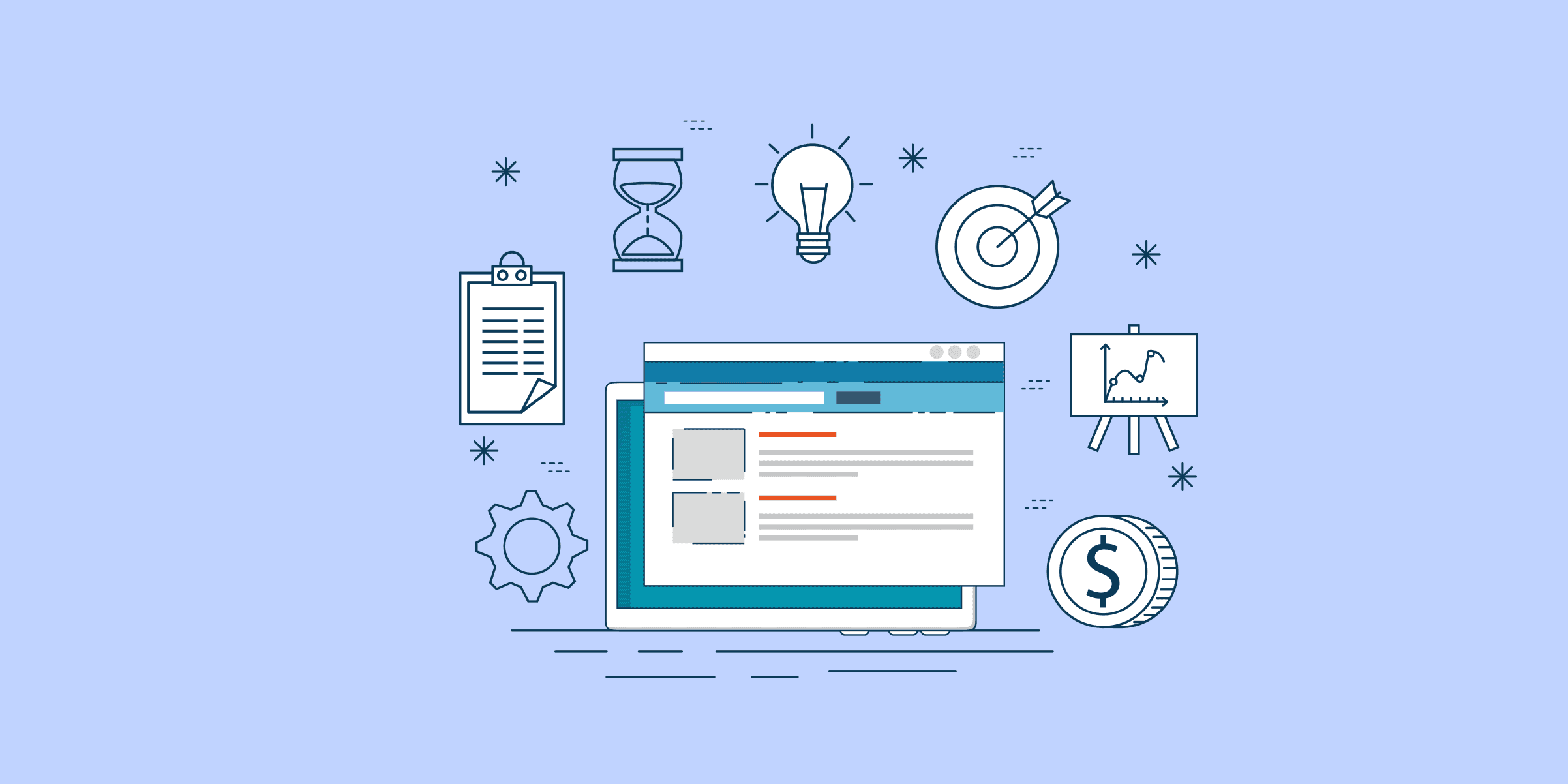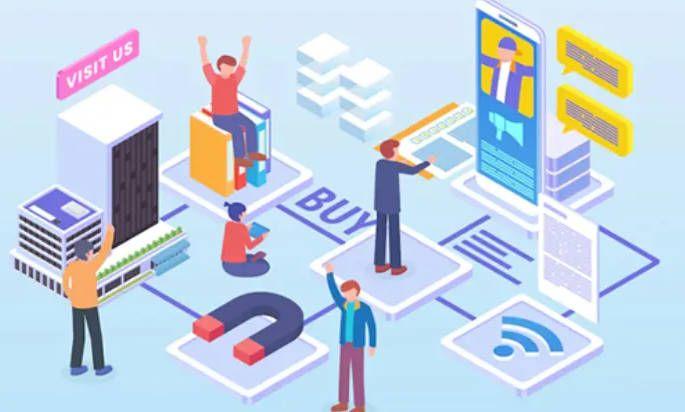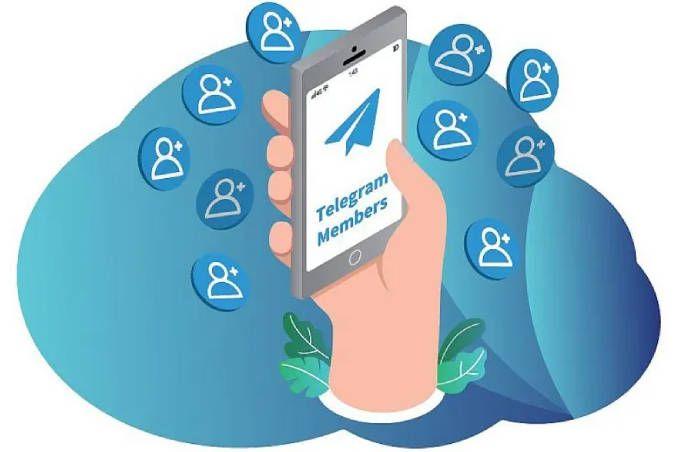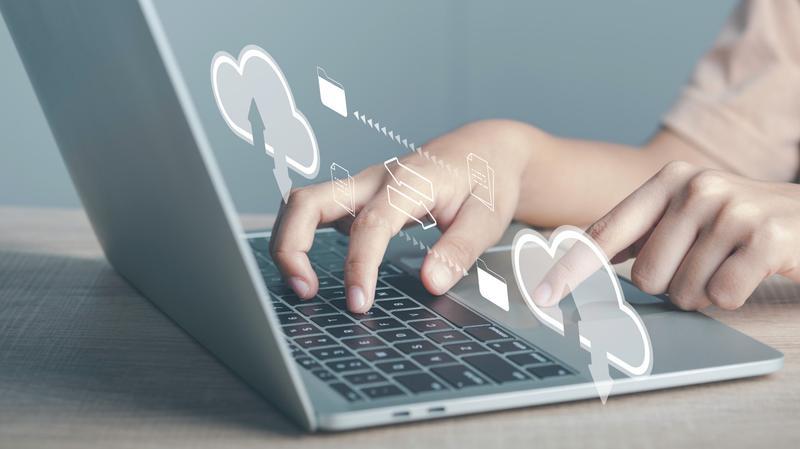ERP vs CRM: What’s the Difference?

LIKE.TG 成立于2020年,总部位于马来西亚,是首家汇集全球互联网产品,提供一站式软件产品解决方案的综合性品牌。唯一官方网站:www.like.tg
Leveraging technology to streamline operations and enhance customer experiences has become increasingly important as the business space becomes progressively more saturated and competitive. Customer relationship management (CRM) and enterprise resource planning (ERP) emerge as indispensable software solutions that empower businesses to achieve these goals. While CRM focuses on nurturing customer interactions and relationships, ERP streamlines internal processes, encompassing varied aspects such as supply chain management, inventory control, and financial management. Understanding the unique strengths and potential synergies of CRM and ERP is necessary for businesses seeking to thrive in the digital age. We’ll take a look into the intricacies of CRM and ERP integration, highlighting their distinct features, benefits and the transformative power of their integration.
What is Customer Relationship Management?
Within the business space, as it is today, it’s no longer enough to provide an exceptional product or service simply. Now, you must also showcase and maintain unmatched customer service to gain an edge over competitors. Customer Relationship Management (CRM) software has quickly become a powerful tool that helps businesses manage and nurture these relationships effectively. CRM systems serve as centralised platforms that capture, organise, and analyse customer interactions and data, providing businesses with valuable insights into their customers’ needs, preferences, and behaviours.
CRM systems facilitate the efficient management of customer information, encompassing contact details, purchase history, support requests, and communication history. This comprehensive data repository empowers businesses to deliver personalised and targeted customer experiences, fostering loyalty and driving business growth.
Additionally, CRM systems automate various tasks associated with managing customer data and interactions, such as sending marketing emails, tracking customer support tickets, and generating reports. These automation capabilities streamline operations, freeing up valuable time and resources that can be redirected towards enhancing customer engagement and satisfaction.
By leveraging CRM systems, businesses gain a competitive edge by improving customer service, boosting sales, and optimising marketing efforts. These systems provide a holistic view of customer interactions, enabling businesses to make informed decisions, build stronger relationships, and ultimately drive business success.
What is ERP?
In business management, the concept of ERP, or Enterprise Resource Planning, emerges as a transformative force, revolutionising how organisations manage their operations. Unlike customer relationship management (CRM) systems, which focus on interactions with external clients, ERP systems serve as comprehensive hubs, integrating various departments and functions within a company. This centralised approach allows for seamless coordination and resource management, streamlining business processes and fostering overall operational excellence.
ERP systems encompass a diverse range of modules, catering to critical business areas such as accounting and finance, supply chain management, manufacturing, human resources, project management, and more. These modules act as interconnected components, seamlessly communicating and sharing data in real-time. This interconnectedness empowers businesses with the ability to gain instant insights into their operations, enabling informed decision-making and strategic planning.
One of the key benefits of ERP systems lies in their ability to automate repetitive tasks, significantly reducing the burden of manual labour and enhancing operational efficiency. By eliminating data silos and ensuring a consistent flow of information across the organisation, ERP systems foster collaboration and communication among different departments. This interconnectedness breaks down barriers, allowing for a streamlined exchange of ideas and resources, ultimately driving organisational success.
The implementation of ERP systems provides businesses with a multitude of advantages, including optimised processes, reduced costs, and a distinct competitive edge. By offering a holistic view of the organisation’s performance, ERP systems empower data-driven decision-making and strategic planning, ensuring that businesses remain agile and responsive to market dynamics. In today’s fast-paced business landscape, ERP systems stand as indispensable tools, enabling organisations to thrive in an increasingly competitive environment.
CRM Benefits
CRM software offers numerous benefits that can significantly enhance a business’s operations, customer satisfaction, and overall success. Here are some of the key benefits of using CRM solutions and systems:
Improved customer service: CRM systems provide businesses with a centralised platform to manage customer interactions, ensuring that customers receive prompt and personalised assistance. By accessing customer information and interaction history, support teams can quickly address customer queries and concerns, leading to higher customer satisfaction and loyalty.
Increased customer retention: CRM systems enable businesses to gain a deeper understanding of their customers’ needs and preferences. This knowledge empowers businesses to tailor their products, services, and marketing strategies to meet customer expectations, resulting in increased customer retention and repeat business.
Automated sales and marketing processes: CRM systems automate various sales and marketing tasks, such as lead generation, contact management, email campaigns, and sales forecasting. This automation streamlines workflows, reduces manual labour, and allows sales and marketing teams to focus on more strategic activities that drive revenue growth.
Valuable insights into customer behaviour: CRM systems collect and analyse vast amounts of customer data, providing businesses with valuable insights into customer behaviour, preferences, and buying patterns. This information enables businesses to make data-driven decisions, optimise their marketing campaigns, and develop targeted strategies to attract and retain customers.
Enhanced collaboration and communication: CRM systems foster collaboration and communication between different departments within an organisation, ensuring customer-related information is seamlessly shared. This alignment improves the overall customer experience and allows businesses to respond to customer needs more effectively.
Increased profitability: By leveraging CRM systems, businesses can optimise their sales and marketing efforts, and sales cycle, leading to increased revenue generation. Additionally, the automation of tasks and improved customer retention contribute to cost savings, resulting in enhanced profitability for the business.
Overall, CRM systems provide a comprehensive suite of tools and functionalities that empower businesses to manage customer relationships effectively, deliver exceptional customer service, and drive business growth.
ERP Benefits
Enterprise resource planning (ERP) software can help businesses improve efficiency, productivity, and profitability in a number of ways. By streamlining business processes across multiple departments, ERP systems can help businesses reduce costs, improve customer service, and make better decisions.
One of the key benefits of ERP systems is their ability to automate repetitive tasks, which can significantly reduce the burden of manual labour and free up employees to focus on more strategic tasks. For example, ERP systems can automate tasks such as order processing, inventory management, and financial reporting. This can save businesses time and money, and it can also help to improve accuracy and consistency.
Another benefit of ERP systems is their ability to improve decision-making. By providing businesses with a single source of truth for all of their data, ERP systems can help them to make better decisions about how to allocate resources, manage inventory, and serve customers. For example, ERP systems can help businesses to identify trends in customer demand, which can help them to make better decisions about what products to produce or sell.
ERP systems can also help businesses to improve customer service. By providing customer service representatives with access to all of the information they need about a customer, ERP systems can help them to resolve customer issues quickly and efficiently. This can lead to increased customer satisfaction and loyalty.
Finally, ERP systems can help businesses to reduce costs. By automating repetitive tasks and improving decision-making, ERP systems can help businesses to save time and money. Additionally, ERP systems can help businesses to identify and eliminate waste, which can further reduce costs.
What is the Difference Between CRM and ERP?
CRM and ERP systems are both essential business software solutions, but they serve different purposes and cater to different aspects of business operations.
CRM systems are primarily focused on managing customer interactions and relationships. They provide businesses with a central platform to store and analyse customer data, track customer interactions, and manage sales and marketing campaigns. These CRM tools and systems help businesses understand their customers, personalise their experiences, and provide exceptional customer service.
On the other hand, ERP systems are more comprehensive and encompass a wider range of business functions. They integrate various modules such as accounting and finance, supply chain management, manufacturing, financial and operational systems, human resources, and project management. ERP systems provide businesses with a holistic view of their operations, streamline processes, and facilitate collaboration between different departments.
The key difference between CRM and ERP systems lies in their scope and focus. CRM systems are customer-centric, while ERP systems are business-wide. CRM systems help businesses manage customer relationships, while ERP systems help businesses manage all aspects of their operations.
In terms of users, CRM systems are primarily used by sales, marketing, and customer service teams. ERP systems, on the other hand, are used by a wider range of users across different departments, including finance, accounting, operations, and human resources.
Both CRM and ERP systems can provide significant benefits to businesses. CRM systems can improve customer satisfaction, increase sales, and optimise marketing efforts. ERP systems can streamline operations, reduce costs, and improve decision-making.
For businesses looking to improve their customer relationships and sales performance, a CRM system is a valuable investment. For businesses looking to optimise their operations and gain a holistic view of their business, an ERP system is the better choice.
CRM and ERP Similarities
Although CRM and ERP are distinct software applications, they share several similarities. Both systems help businesses manage and organise data, track customer interactions and sales, generate reports and analytics, and integrate with other business applications. Ultimately, both CRM and ERP can be used to improve customer service and satisfaction.
One of the key similarities between CRM and ERP is their focus on data management. Both systems collect and store data about customers, sales, and other business operations. This data can then be used to generate reports and analytics, which can help businesses make informed decisions about how to improve their operations.
Another similarity between CRM and ERP is their ability to track customer interactions and sales. CRM systems track customer interactions, such as phone calls, emails, and website visits. ERP systems track sales, such as orders, invoices, and payments. This information can be used to improve customer service and sales performance.
Finally, both CRM and ERP systems can be integrated with other business applications. This allows businesses to share data between different systems and improve their overall efficiency. For example, a CRM system can be integrated with an ERP system to share customer data, or an ERP system can be integrated with a financial management system to share financial data.
By understanding the similarities between CRM and ERP, businesses can make informed decisions about which system is right for them. CRM systems are best suited for businesses that need to manage customer interactions and sales. ERP systems are best suited for businesses that need to manage all aspects of their operations.
Do I need CRM or ERP or both?
Whether you need CRM, ERP, or both depends on several factors, including the size of your business, the nature of your industry, and your specific business goals.
If you are a small business with a relatively simple operation, you may be able to get by with just a CRM system. CRM systems can help you track customer interactions, manage sales opportunities, and provide customer service. However, if your business is larger or more complex, you may need an ERP system to manage all aspects of your operations, including accounting, finance, inventory, and manufacturing.
Here are some factors to consider when deciding whether you need an CRM or ERP system, or both:
The size of your business: CRM systems are typically more suitable for small businesses with a relatively simple operation. ERP systems are better suited for larger businesses with more complex operations.
The nature of your industry: CRM systems are particularly beneficial for businesses in the sales, marketing, and customer service industries. ERP systems are better suited for businesses in the manufacturing, distribution, and retail industries.
Your specific business goals: CRM systems can help you improve customer service, increase sales, and grow your business. ERP systems can help you improve efficiency, reduce costs, and make better decisions.
If you are unsure whether you need CRM, ERP, or both, it is a good idea to consult with a business software expert. They can help you assess your needs and recommend the best software solution for your business.
Ultimately, the best way to decide whether you need CRM, ERP, or both is to evaluate your business needs and goals. If you are still not sure which software solution is right for you, it is a good idea to consult with a business software expert. They can help you assess your needs and recommend the best software solution for your business.
Key Features of ERP vs. CRM
CRM and ERP systems offer a range of features that cater to the specific needs of their respective users. CRM systems prioritise customer-facing functions, such as contact management, sales tracking, and customer service. These features enable businesses to centralise customer data, streamline communication, and deliver personalised experiences.
ERP systems, on the other hand, focus on managing internal operations. They encompass modules for financial management, supply chain management, inventory control, and project management. These features help businesses optimise their processes, reduce costs, and make informed decisions based on real-time data.
The key features of CRM systems include:
- Contact management: Centralises customer information, including contact details, interactions, and preferences, providing a comprehensive view of customer relationships.
- Sales tracking: Allows sales teams to track leads, opportunities, and deals, enabling them to monitor progress and identify potential roadblocks.
- Customer service: Offers tools for managing outstanding customer service tickets, inquiries, complaints, and feedback, ensuring prompt and effective resolution.
- Marketing automation: Streamlines marketing campaigns, automates tasks, and personalised customer communications.
- Analytics and reporting: Provides insights into customer behaviour, sales performance, and overall business metrics, aiding decision-making.
The key features of ERP systems include:
- Financial management: Manages financial transactions, accounts payable and receivable, budgeting, risk management and forecasting, providing a clear financial picture of the business.
- Supply chain management: Optimises the flow of goods and services, from procurement to delivery, ensuring efficient inventory management and timely fulfilment.
- Inventory control: Tracks inventory levels, reorder points, and warehouse locations, minimising stockouts and optimising storage space.
- Project management: Facilitates project planning, resource allocation, scheduling, and progress tracking, ensuring successful project execution.
- Business intelligence: Offers advanced analytics and reporting capabilities, allowing businesses to analyse data, identify trends, and make data-driven decisions.
These features in both CRM and ERP systems cater to diverse user groups within an organisation. CRM systems are primarily used by sales, marketing, and customer service teams, while ERP systems serve a broader range of users, including finance, accounting, operations, and human resources departments.
Integration of ERP and CRM Systems
Integrating ERP and CRM systems can provide businesses with a unified view of their data and improve their ability to deliver exceptional customer service. This section will discuss the benefits of integrating ERP and CRM systems, including improved data management and consistency, enhanced customer service, lower customer acquisition costs, streamlined order management, and accurate inventory management.
By integrating ERP and CRM systems, businesses can ensure that customer information is consistent across all departments. This means that sales reps, marketing, and customer service teams will have access to the same up-to-date customer data, which can lead to improved customer service and increased sales. For example, if a customer calls in with a question about their order, the customer service representative will be able to access the customer’s order history and provide them with the information they need.
In addition to improving customer service, integrating ERP and CRM software systems can also help businesses streamline their order management process. When sales orders are created in the CRM system, they can be automatically transferred to the ERP system, which can then generate invoices and ship orders. This can save businesses time and money by eliminating the need for manual data entry.
Finally, integrating ERP and CRM systems can help businesses improve their inventory management. By having a single view of inventory levels, businesses can avoid stockouts and overstocking. This can lead to increased sales and reduced costs.
In conclusion, integrating ERP and CRM systems can provide businesses with a number of benefits, including improved data management and consistency across operational systems, enhanced customer service, streamlined order management, and accurate inventory management. By integrating these two systems, businesses can improve their operational efficiency and profitability.
LIKE.TG ERP integration and CRM
Businesses seeking to enhance customer service and operational efficiency can benefit greatly from integrating LIKE.TG’s CRM and ERP solutions. LIKE.TG CRM excels in managing customer interactions and fostering relationships, while LIKE.TG ERP seamlessly handles various business operations. Integrating these systems provides a comprehensive view of customers, enhancing customer service solutions and the ability to deliver personalised and exceptional service.
One significant advantage of this integration lies in automating customer service processes. When customers reach out with inquiries, representatives can swiftly access account and order information within LIKE.TG CRM, ensuring prompt and accurate responses. Moreover, LIKE.TG ERP’s inventory tracking and shipping data empower sales representatives to furnish customers with up-to-date order information, fostering trust and satisfaction.
This integration also elevates sales processes by identifying high-potential customers through data analysis of customer interactions and sales history. Armed with this knowledge, businesses can target personalised marketing campaigns, increasing the likelihood of conversions and revenue growth. Additionally, LIKE.TG ERP’s sales order management and inventory tracking capabilities ensure that businesses maintain adequate stock levels, preventing missed sales opportunities.
The synergy of LIKE.TG CRM and ERP delivers numerous benefits, including superior customer service, increased sales, and reduced operational costs. By presenting a unified customer data view, these systems empower businesses to make informed decisions, optimise processes, and provide a customer experience that stands out in today’s competitive landscape. Embracing this integration is a strategic move towards sustained growth and customer loyalty.
Businesses seeking to thrive in the modern marketplace should consider integrating LIKE.TG CRM and ERP solutions. The advantages they offer, such as streamlined customer service, data-driven sales strategies, and operational efficiency, contribute to long-term success and customer satisfaction.

LIKE.TG 专注全球社交流量推广,致力于为全球出海企业提供有关的私域营销获客、国际电商、全球客服、金融支持等最新资讯和实用工具。免费领取【WhatsApp、LINE、Telegram、Twitter、ZALO】等云控系统试用;点击【联系客服】 ,或关注【LIKE.TG出海指南频道】、【LIKE.TG生态链-全球资源互联社区】了解更多最新资讯
本文由LIKE.TG编辑部转载自互联网并编辑,如有侵权影响,请联系官方客服,将为您妥善处理。
This article is republished from public internet and edited by the LIKE.TG editorial department. If there is any infringement, please contact our official customer service for proper handling.


















